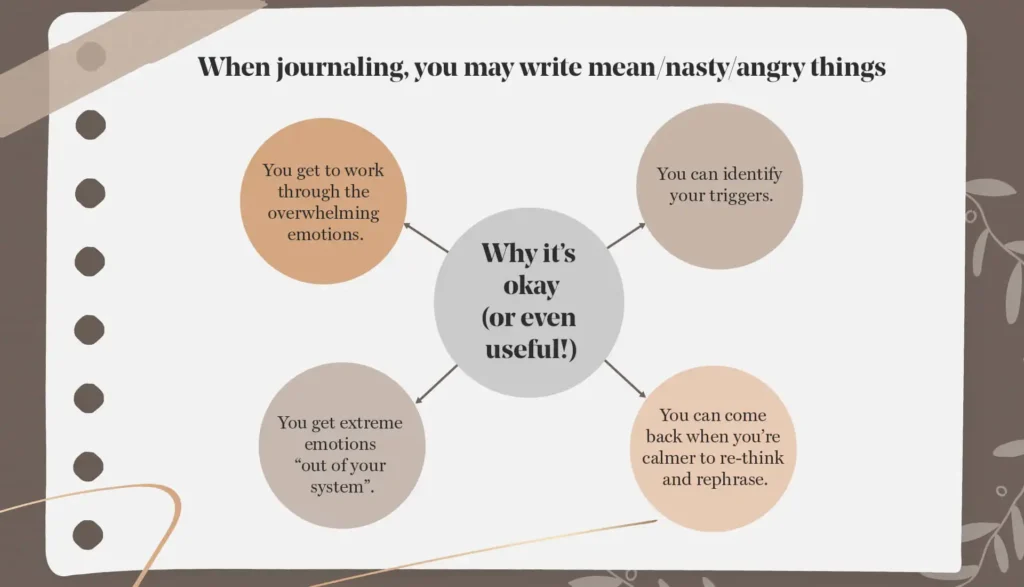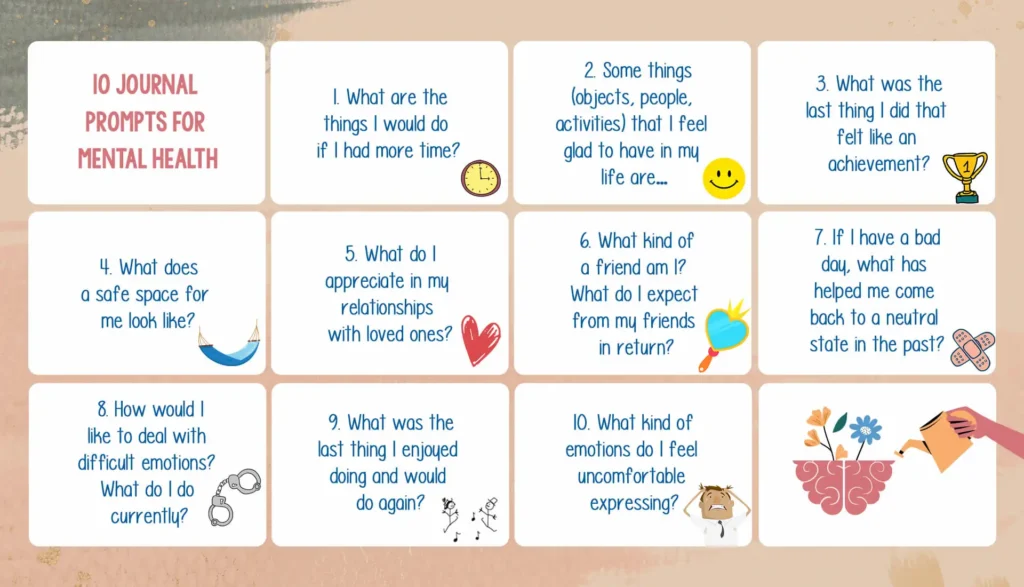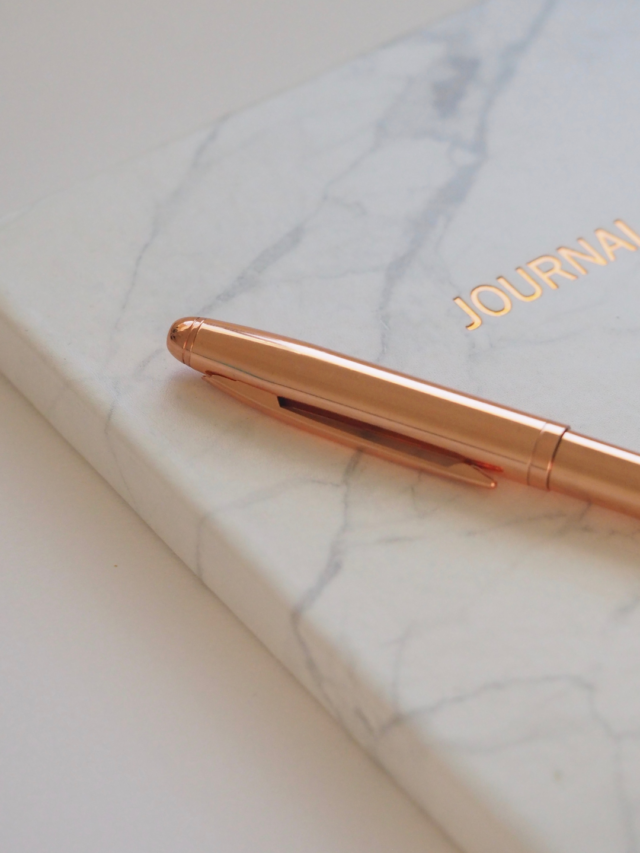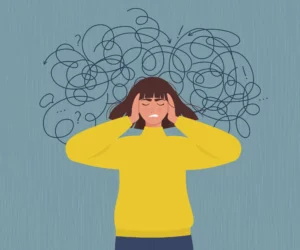
‘Journaling’ is a buzzword that triggers different visuals for different people. Many people turned to journaling during the lockdown as a new activity that gave structure to their day. But journaling goes beyond being a pandemic fad; it does wonders for mental health! So what is journaling for mental health really about? How do you do it? How does it help people? And if it’s so helpful, why doesn’t everybody journal?
What is journaling? What do you write in a journal for better mental health?
Journaling is the practice of writing down personal reflections on any topic, theme, or idea. Often compared to “diary writing”, it can be any way of recording your thoughts, feelings, events, or just penning down something you want to return to later. When people think of “journaling”, pretty handwriting and fancy stationery often come to mind. While these can add to the pleasure of the process, journals can take on any form: handwritten, typed out on a laptop, scrawled, scribbled, or even wordless, like art journals. The process of journaling for mental health is significant: sitting down, giving yourself time, and trying to be as open and honest as possible.
There is something that keeps drawing more and more people towards journaling. So, in addition to the massive potential for Instagram reels, perhaps there is something more at play? Let’s find out more about journaling for mental health.
- A safe space to be yourself: Journaling’s most attractive feature is that it gives you a safe space to think through something. It is the equivalent of venting to a friend—but with fewer interruptions. In fact, we may sometimes censor ourselves or downplay certain things about mutual acquaintances with a friend. A journal is a space where no such masks or caution is required.

- A quiet space for reflection: In today’s digital age, we often instantly share our reactions and thoughts on social media, sometimes even before they are fully formed. While posting on social media can give us a sense of closure, in reality, our minds may still be grappling with the issue. A journal gives you space to hash it out with yourself. What do you really think? What are the associated thoughts that spring up? A young woman’s diary, Shrayana Bhattacharya describes succinctly in her book Desperately Seeking Shah Rukh, is a place where she can step back and look at the world, making sense of it all. In a different sense, this could apply to all genders and age groups.
- A record of the good: Journaling for mental health isn’t always about working out your anxiety or negative emotions. You can also use your journal to document positive events in your life. If you have anxiety or depression, you are sometimes caught in the crossfire of overwhelming events and negative interpretations more than positive emotions. Keeping a record of your thoughts when you felt appreciated, grateful, and happy could give you a much-needed respite from all the negative self-talk. Returning to the pages of your journal to reminisce over positive happenings in your life can make it all feel more real to you.
So why isn’t everyone journaling for mental health?
Despite these benefits and more, many people are hesitant to take up journaling. Let’s look at some common problems associated with journaling and see how you can approach them.
“All that writing—it’s too boring and demanding!”
Journaling for mental health can seem tedious if you are not fond of expressing yourself in a written form. It’s important to remember that you don’t need to write it all! Journals can contain keywords, bullet points, mind-maps, or visual or graphic depictions of what you feel (like in art journals). It’s your space to express yourself as you want! Voice notes (on a recorder or app) are also a great way to privately reflect and ‘talk things through’.
“I don’t want to deal with all my thoughts—it’s too embarrassing!”
Most people are wired to avoid unpleasant activities, which can sometimes include dealing with our own thoughts. While it may be embarrassing to admit the honest truth to ourselves, it’s a good practice. After all, no one else will judge you. Furthermore, once you know how you truly feel about something, it can help you decide how you would like to deal with it in the future. There are also many good journal prompts that could assist you. Pinterest and Instagram often have great ideas for journaling prompts. Some common themes that could help when you want to write but feel stuck are:

If you still feel uncomfortable or anxious about this process, you could seek professional help to understand how to journal honestly.
“What if someone reads it? That would be horrifying!”
The internet abounds with stories of people browsing through other people’s journals in a casual, thoughtless way. So why would I give anyone that potential ammo by putting stuff down? If this is your main point of concern, there are several ways to ensure privacy. One is to store your journal along with any other precious belongings in a locked drawer or cupboard. Secondly, you could carry it with you throughout the day. This is also good as you can scribble in it whenever something strikes you. Finally, for non-physical journals, password-protected files or private blogs are the way to go!
Now it’s your turn!
Even with all these exciting attributes, journaling for mental health might still not be for everyone. However, there’s no way to know unless you try! Start by integrating it as a regular activity in your daily routine for a few weeks. You can do it first thing in the morning or at night to reflect and plan for the day to come. There are no rules—only that you try to be as honest as possible with whatever you put down.
If, after trying it for 2-3 weeks, you think there are no real benefits on any front, you could always try other ways to process your complex thoughts and feelings, through therapy, music and other art forms, mood trackers, and so on. However, if you notice that the process leads to clarity of thought, an understanding of anxiety, anger, or the things that calm you down, keep journaling and find a routine and format that works for you!
The author journals several times a week. She finds it to be an excellent outlet for managing fear, anxiety, anger—and a way to capture joy and immortalise happy events, strengthening her appreciation for self-expression.




It’s really a very useful article. Thank You.
Keep Going. All the Best!!